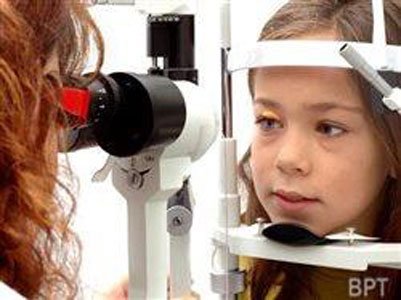Reading the computer, chalkboard and books are critical elements of getting an education that can lead students to reaching their full potential and making their goals and dreams come true.
Surprisingly, vision disability is the single most prevalent disabling condition among children.
In fact, one-in-four-students in kindergarten through sixth grade has an undetected vision problem that can interfere with their ability to read and learn, according to the American Optometric Association.
While scheduling your children’s doctor and dentist visits before they head back to school this year, it’s important to remember that an eye exam is just as important. The ability to see clearly and comfortably can directly impact children’s performance both in and out of the classroom.
Three-time Grammy Award winner Darius Rucker knows first-hand the role that vision plays in seeing and achieving your best:
“Vision is such an important part of my life, both professionally and personally,” Rucker says. “And it’s surprising just how many kids don’t receive quality vision care, especially since seeing their best can help them pursue their biggest dreams.”
While your children might receive vision screenings in school at the beginning of the year, some of the most common vision issues such as eye coordination, lazy eye and farsightedness can only be detected through a comprehensive exam with an eye doctor.
Some signs that your child might need a comprehensive eye exam include:
- Squinting or rubbing eyes continuously
- Complaining about headaches
- Holding reading materials too close or too far away
- Using fingers to trace words while reading
- Exhibiting lack of attention or fatigue during school
It’s also important to make sure that your children have eyewear that not only enhances their vision, but protects it as well. Consider Transitions adaptive lenses, which automatically change from clear indoors to dark outdoors, blocking 100 percent of harmful UV rays to keep their eyes comfortable whether they are inside for class or outside for recess.
“I’ve worn Transitions lenses for years, and always make sure that my family and I get to the eye doctor regularly so we can all see our best,” says Rucker.
Access to quality vision care is important here in the United States, and is even more of an issue worldwide, affecting approximately half a billion people globally. Transitions Optical and Darius Rucker have recently teamed up with OneSight— a nonprofit organization working to provide access to quality eye care and eyewear in underserved communities worldwide. To find out how you can help, visit www.onesight.org.
